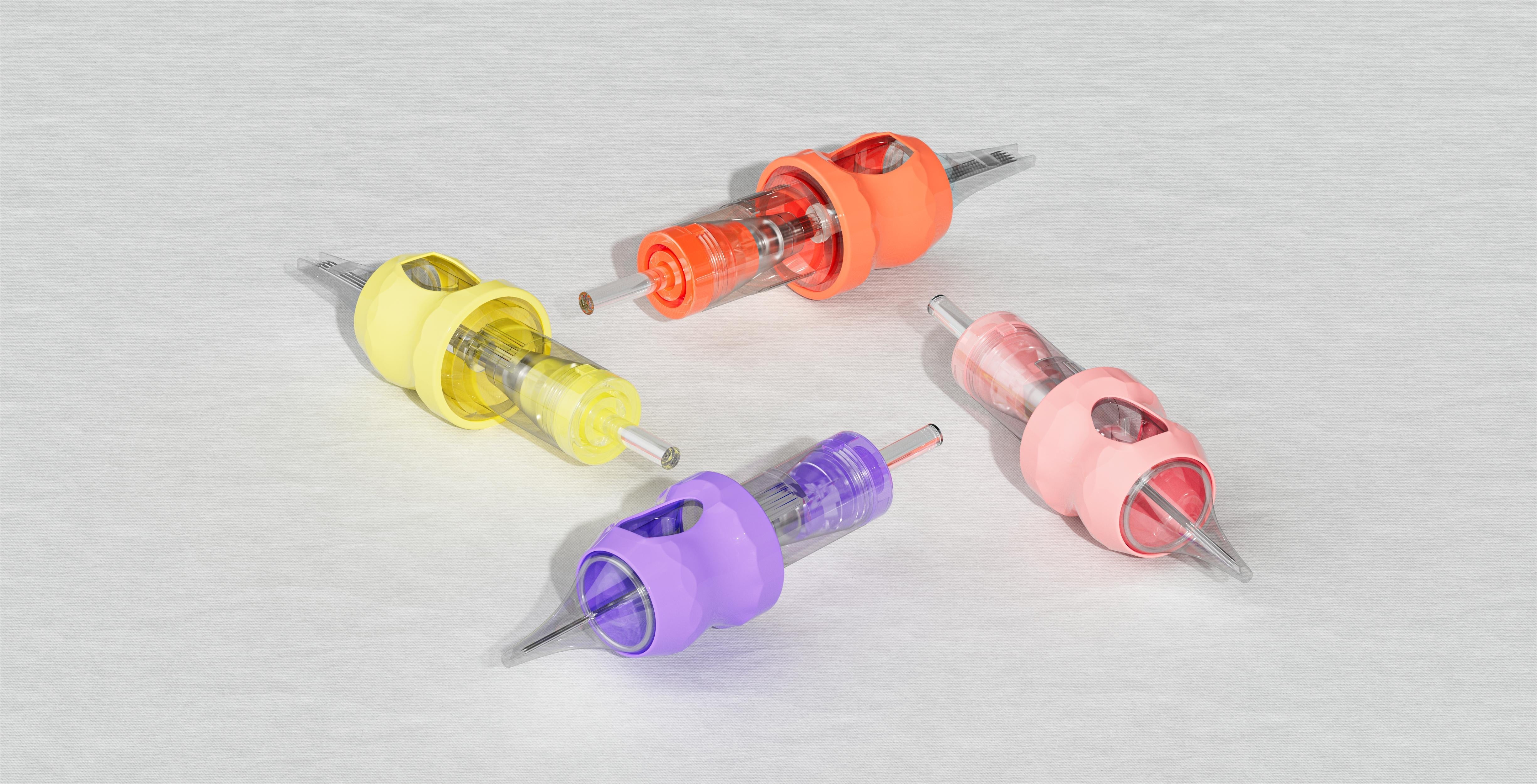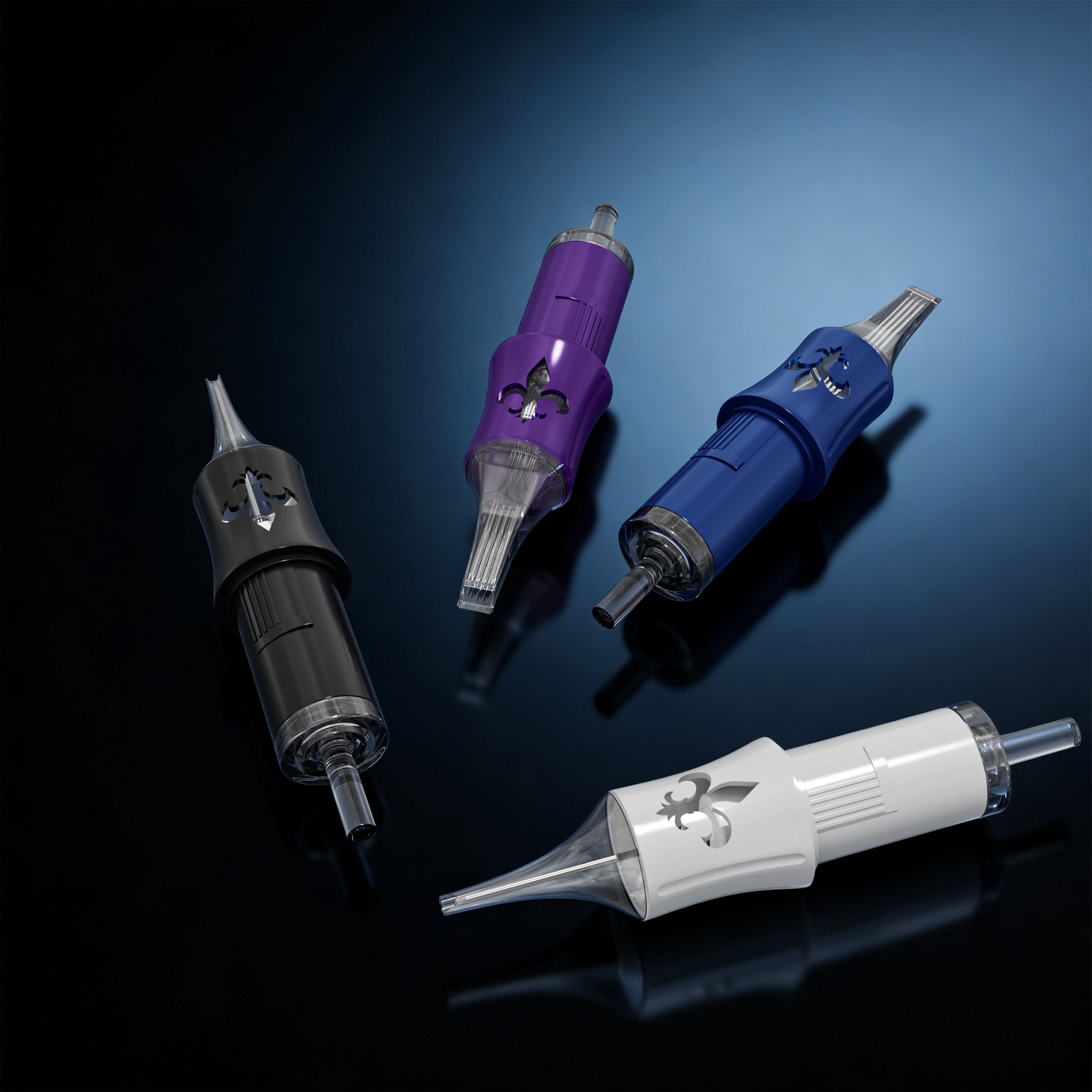When it comes to creating depth, dimension, and smooth gradients in tattoo art, the tool that makes it all possible is the tattoo shading needle. While linework sets the structure of a tattoo, shading brings it to life—giving it texture, realism, and mood.
Whether you're just getting started or looking to refine your technique, understanding the types and functions of tattoo shading needles is essential to elevating your work. Let’s dive deep into the world of shading configurations, machine compatibility, and application techniques.
Tattoo Needle Basics: Lining vs Shading
Tattoos are generally built using two types of needles:
| Type | Function |
|---|---|
| Outline tattoo needles | Used for bold, clean lines |
| Tattoo shading needles | Used to create gradients, shadows, and fill |
The main difference lies in how the needles are grouped and how the ink is deposited.
What Are Tattoo Shading Needles?
Shading needles, also called tattoo needle shaders, are needle groupings designed to spread ink over a broader surface. They can be used for:
- Soft black and grey work
- Color packing
- Realism and portrait tattoos
- Background fills and gradients
The most common types of tattoo machine needle groupings for shading include:
| Type | Description |
|---|---|
| Magnum (M1) | Staggered needles in two rows; excellent for smooth shading |
| Round Shader (RS) | Circular arrangement; better for small shaded areas |
| Curved Magnum (CM/Soft Edge) | Rounded edge reduces trauma, ideal for soft blends |
| Flat Needles (F) | Straight line of needles, rarely used but good for strong fills |
These can be paired with different machines, such as rotary tattoo pens, coil tattoo guns, or modern wireless tattoo pens.
Tattoo Gun Needles vs. Tattoo Pen Needles: What's the Difference?
The type of tattoo gun needles you use depends on the machine you’re working with.
| Machine Type | Compatible Needles |
|---|---|
| Coil Machine | Needle bar + tube setup |
| Rotary/pen machine | Cartridge needles (pre-grouped and sterile) |
Modern artists increasingly use tattoo pen needles, especially for shading, due to their precision and convenience.
Tip: If you’re using a Neebol wireless tattoo pen, use high-quality cartridge shading needles with proper membrane protection for safety and consistency.
Choosing the Right Shading Needle Configuration
Selecting the correct needle depends on:
Style:
- Black and grey realism → Curved Magnum
- Color realism → Magnum or Soft Edge Magnum
- Traditional style fill → Flat or Round Shader
Tattoo Size:
- Large pieces = 11M1, 15M1
- Medium areas = 7M1, 9M1
- Small/precise = 5RS, 7RS
Skin Sensitivity:
Curved magnums cause less trauma, so they’re preferred for sensitive areas like ribs, neck, or inner arm.
Shading Techniques Every Artist Should Know
Even the best shading needles for tattoo guns are only as good as your technique. Here are some core methods:
Whip Shading
- Fast backward movement from a contact point
- Ideal for soft edges and light shadows

Circular Motion
- Used for color packing or even grey wash blending
- Requires stable hand speed and needle depth
Layering
- Multiple light passes to build up tone
- Safer and heals better than a single deep pass

Pressure Control
- Softer pressure = lighter shade
- Use hand movement, not needle depth, to control darkness
Pro Tip: Always test your shading technique on synthetic skin or practice pads before tattooing real clients.
Common Mistakes When Using Shading Needles
| Mistake | Fix |
|---|---|
| Using a liner for shading | Use the correct shader needle grouping |
| Overworking the skin | Build gradually, avoid going over the same spot too much |
| Wrong needle depth | Stay within 1.5–2 mm depending on area |
| Using the wrong ink viscosity | Use thinner ink for black & grey, thicker for color packing |
Recommended Shading Needle Setups for Beginners
If you're just getting started, here are a few combinations that are beginner-friendly and highly effective:
| Machine | Needle | Use Case |
|---|---|---|
| Neebol Rotary Pen | 7CM Cartridge Needle | Smooth grey shading |
| Wireless Tattoo Gun | 9M1 + 3RS | Background + detail |
| Coil Shader | 11F Needle Bar | Traditional color fill |
How to Clean and Maintain Tattoo Shading Needles
For cartridge systems:
- Use one needle per client only
- Store in sterile packaging
- Dispose in sharps container after use
For needle bar setups:
- Autoclave and ultrasonic clean thoroughly
- Inspect tips for bends or burrs
- Store in dry, closed containers
Conclusion: Perfecting Your Shading Game
Tattoo shading needles are your secret weapon for depth, emotion, and realism. Whether you're filling in a background or adding subtle gradients to a portrait, your choice of tattoo shader needle directly impacts the final result.
Learn your tools. Practice different techniques. And most importantly, always choose high-quality needles that match your machine and style.
As tattooing evolves, precision and comfort are no longer optional—they’re expected. So whether you're using tattoo gun needles or modern tattoo pen needles, the right shader will take your art to the next level.










Share:
Common Tattoo Machine Problems and Solutions
Best Lotion for New Tattoo: Aftercare Tips, Ingredients to Avoid, and Top Picks